 W
WAmerican Colonization Society (ACS), originally known as the The Society for the Colonization of Free People of Color of America, was founded in 1816 by Robert Finley to encourage and support the migration of free African Americans to the continent of Africa.
 W
WThe Samaná Americans are a minority cultural sub-group that inhabits the Peninsula of Samaná in the Dominican Republic.
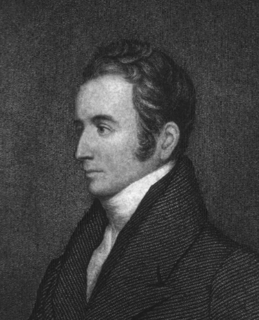 W
WJehudi Ashmun was an American religious leader and social reformer from New England who became involved in the American Colonization Society. It founded the colony of Liberia in West Africa as a place to resettle free people of color from the United States.
 W
WJames Gillespie Birney was an abolitionist, politician, and attorney born in Danville, Kentucky. He published an abolitionist weekly publication titled The Philanthropist and twice served as the presidential nominee for the anti-slavery Liberty Party.
 W
WNapoleon Bonaparte Broward was an American river pilot, captain, and politician.
 W
WCharles Carroll, known as Charles Carroll of Carrollton or Charles Carroll III to distinguish him from his similarly-named relatives, was an American statesman, a wealthy Maryland planter, an early advocate of independence from the Kingdom of Great Britain and one of the signers of the American Declaration of Independence. The sole Catholic signer of the Declaration, he is one of the Founding Fathers of the United States. Carroll was known contemporaneously as the "First Citizen" of the American Colonies, a consequence of his editorials in the Maryland Gazette. He served as a delegate to the Continental Congress and Confederation Congress. Although he was not involved in framing the United States Constitution, it is believed that Freedom of Religion in the Constitution's First Amendment was included to show gratitude to Carroll because Carroll gave financial support from his personal funds for the American Revolutionary War. Carroll later served as the first United States Senator for Maryland. Carroll was the wealthiest and possessed the highest formal education of all of the signers of the Declaration of Independence. A product of his 17-year Jesuit education in France, Carroll spoke five languages fluently.
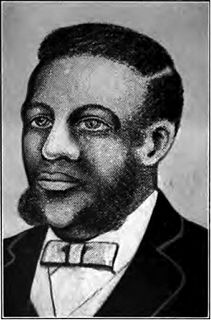 W
WLott Cary was an African-American Baptist minister and lay physician who was a missionary leader in the founding of the colony of Liberia on the west coast of Africa in the 1820s. He founded the first Baptist church there in 1822, now known as Providence Baptist Church of Monrovia. He served as the colony's acting governor from August 1828 to his death in November of that year.
 W
WHenry Clay Sr. was an American attorney and statesman who represented Kentucky in both the Senate and House. He was the seventh House Speaker and the ninth Secretary of State. He received electoral votes for president in the 1824, 1832, and 1844 presidential elections. He also helped found both the National Republican Party and the Whig Party. For his role in defusing sectional crises, he earned the appellation of the "Great Compromiser" and was part of the "Great Triumvirate."
 W
WWilliam Harris Crawford was an American politician and judge during the early 19th century. He served as United States Secretary of War and United States Secretary of the Treasury before running for president in the 1824 election.
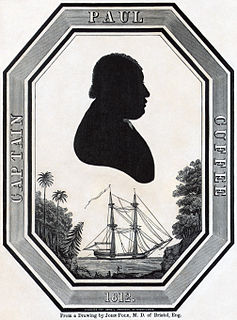 W
WPaul Cuffe, also known as Paul Cuffee was an American businessman, whaler and abolitionist. Born free into a multiracial family on Cuttyhunk Island, Massachusetts, Cuffe became a successful merchant and sea captain. His mother, Ruth Moses, was a Wampanoag from Harwich, Cape Cod and his father an Ashanti captured as a child in West Africa and sold into slavery in Newport about 1720. In the mid-1740s, his father was manumitted by his Quaker owner, John Slocum. His parents married in 1747 in Dartmouth.
 W
WStephen Duncan became a major planter and banker in Mississippi in the antebellum years, migrating there from his home state of Pennsylvania after getting a medical degree. He became the wealthiest cotton planter in the South prior to the American Civil War, and also invested in railroads and Midwest lands. He owned thousands of acres of land and more than 1,000 slaves in the 1850s, cultivating both cotton and sugar cane as commodity crops.
 W
WRobert Finley was an American clergyman and educator from New Jersey who is known as one of the founders of the American Colonization Society, which established the colony of Liberia in West Africa as a place for free American Blacks.
 W
WTheodore Frelinghuysen was an American politician who represented New Jersey in the United States Senate. He was the Whig vice presidential nominee in the election of 1844, running on a ticket with Henry Clay.
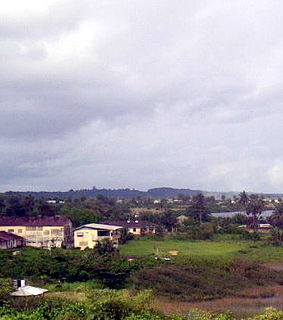 W
WHarper, situated on Cape Palmas, is the capital of Maryland County in Liberia. It is a coastal town situated between the Atlantic Ocean and the Hoffman River. Harper is Liberia's 11th largest town, with a population of 17,837.
 W
WThomas Jefferson was an American statesman, diplomat, lawyer, architect, philosopher, and Founding Father who served as the third president of the United States from 1801 to 1809. He had previously served as the second vice president of the United States between 1797 and 1801. The principal author of the Declaration of Independence, Jefferson was a proponent of democracy, republicanism, and individual rights, motivating American colonists to break from the Kingdom of Great Britain and form a new nation; he produced formative documents and decisions at both the state and national levels.
 W
WFrancis Scott Key was an American lawyer, author, and amateur poet from Frederick, Maryland, who is best known for writing the lyrics for the American national anthem "The Star-Spangled Banner".
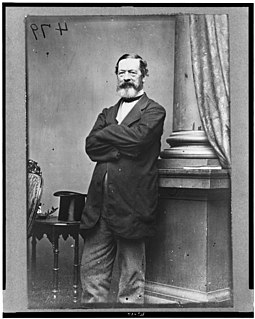 W
WJohn Hazelhurst Boneval Latrobe (1803–1891) was an American lawyer and inventor. He invented the Latrobe Stove, also known as the "Baltimore Heater", a coal fired parlor heater made of cast iron and that fit into fireplaces as an insert. He patented his design in 1846. The squat stoves were very popular by the 1870s and were much smaller than Benjamin Franklin's Franklin stove.
 W
WRichard Bland Lee was a planter, jurist, and politician from Fairfax County, Virginia. He was the son of Henry Lee II (1730–1787) of "Leesylvania" and Lucy Grymes (1734–1792), as well as a younger brother of both Maj. Gen. Henry Lee (1756–1818) and of Charles Lee (1758–1815), Attorney General of the United States from 1795 to 1801, who served in both the Washington and Adams administrations.
 W
WLiberia, officially the Republic of Liberia, is a country on the West African coast. It is bordered by Sierra Leone to its northwest, Guinea to its north, Côte d'Ivoire to its east, and the Atlantic Ocean to its south-southwest. It has a population of around 5 million and covers an area of 111,369 square kilometers (43,000 sq mi). English is the official language, but over 20 indigenous languages are spoken, representing the numerous ethnic groups who make up more than 95% of the population. The country's capital and largest city is Monrovia.
 W
WAbraham Lincoln was an American statesman and lawyer who served as the 16th president of the United States from 1861 until his assassination in 1865. Lincoln led the nation through the American Civil War, the country's greatest moral, constitutional, and political crisis. He succeeded in preserving the Union, abolishing slavery, bolstering the federal government, and modernizing the U.S. economy.
 W
WJames Madison Jr. was an American statesman, diplomat, expansionist, philosopher, and Founding Father who served as the fourth president of the United States from 1809 to 1817. He is hailed as the "Father of the Constitution" for his pivotal role in drafting and promoting the Constitution of the United States and the United States Bill of Rights. He co-wrote The Federalist Papers, co-founded the Democratic-Republican Party, and served as the fifth United States Secretary of State from 1801 to 1809.
 W
WJohn Marshall was an American politician and lawyer who served as the fourth Chief Justice of the United States from 1801 to 1835. Marshall remains the longest-serving chief justice and fourth-longest serving justice in Supreme Court history, and he is widely regarded as one of the most influential justices to ever sit on the Supreme Court. Prior to joining the Supreme Court, Marshall served as the United States Secretary of State under President John Adams.
 W
WThe Maryland State Colonization Society was the Maryland branch of the American Colonization Society, an organization founded in 1816 with the purpose of returning free African Americans to what many Southerners considered greater freedom in Africa. The ACS helped to found the colony of Liberia in 1821–22, as a place for freedmen. The Maryland State Colonization Society was responsible for founding the Republic of Maryland in West Africa, a short lived independent state that in 1857 was annexed by Liberia. The goal of the society was "to be a remedy for slavery", such that "slavery would cease in the state by the full consent of those interested", but this end was never achieved, and it would take the outbreak of the Civil War to bring slavery to an end in Maryland.
 W
WJohn McDonogh was an American entrepreneur whose adult life was spent in south Louisiana and later in Baltimore. He made a fortune in real estate and shipping, and as a slave owner, he supported the American Colonization Society, which organized transportation for freed people of color to Liberia. He had devised a manumission scheme whereby the people he held as enslaved could "buy" their own freedom, which took them some 15 years. In his will he provided large grants for the public education of children of poor whites and freed people of color in New Orleans and Baltimore, and by the 1970s some 20 schools in the New Orleans public school system were named for him.
 W
WEdward McGehee was an American judge and major planter in Wilkinson County, Mississippi. He owned nearly 1,000 slaves to work his thousands of acres of cotton land at his Bowling Green Plantation.
 W
WJohn Willis Menard was a federal government employee, poet, newspaper publisher and politician born in Kaskaskia, Illinois to parents who were Louisiana Creoles from New Orleans. After moving to New Orleans, on November 3, 1868, Menard was the first black man ever elected to the United States House of Representatives. His opponent contested his election, and opposition to his election prevented him from being seated in Congress.
 W
WCharles Fenton Mercer was a nineteenth-century politician, U.S. Congressman, and lawyer from Loudoun County, Virginia.
 W
WMargaret Mercer was an American abolitionist and educator. She worked to end slavery and freed the slaves that she inherited from her father, sending six of them to Africa. Mercer started a school and a chapel that welcomed black people. Her school continued for a short while after her death. In 2018, a Virginia historical marker was dedicated in her honor.
 W
WMississippi-in-Africa was a colony on the Pepper Coast founded in the 1830s by the Mississippi Colonization Society of the United States and settled by American free people of color, many of them former slaves. In the late 1840s, some 300 former slaves from Prospect Hill Plantation and other Isaac Ross properties in Jefferson County, Mississippi, were the largest single group of emigrants to the new colony. Ross had freed the slaves in his will and provided for his plantation to be sold to pay for their transportation and initial costs.
 W
WReverend James Mitchell was the United States Commissioner of Emigration [of negroes] in the Abraham Lincoln administration, and a prominent religious leader in the Georgia Episcopal Methodist Conference after the Civil War.
 W
WJames Monroe was an American statesman, lawyer, diplomat and Founding Father who served as the fifth president of the United States from 1817 to 1825. A member of the Democratic-Republican Party, Monroe was the last president of the Virginia dynasty; his presidency coincided with the Era of Good Feelings. He is perhaps best known for issuing the Monroe Doctrine, a policy of opposing European colonialism in the Americas. He also served as the governor of Virginia, a member of the United States Senate, the U.S. ambassador to France and Britain, the seventh Secretary of State, and the eighth Secretary of War.
 W
WJohn Neal was an American writer, critic, editor, lecturer, and activist. Considered both eccentric and influential, he delivered speeches and published essays, novels, poems, and short stories between the 1810s and 1870s in the United States and Great Britain, championing American literary nationalism and regionalism in their earliest stages. Neal advanced the development of American art, fought for women's rights, advocated the end of slavery and racial prejudice, and helped establish the American gymnastics movement.
 W
WSamuel Clarke Pomeroy was a United States senator from Kansas in the mid-19th century. He served in the United States Senate during the American Civil War. Pomeroy also served in the Massachusetts House of Representatives. A Republican, he also was the mayor of Atchison, Kansas, from 1858 to 1859, the second president of the Atchison, Topeka and Santa Fe Railroad, and the first president to oversee any of the railroad's construction and operations. Pomeroy succeeded Cyrus K. Holliday as president of the railroad on January 13, 1864.
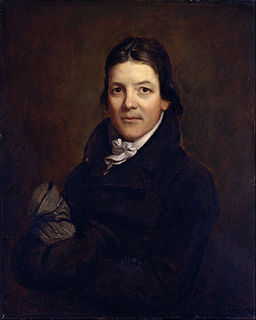 W
WJohn Randolph, commonly known as John Randolph of Roanoke, was an American planter, and a politician from Virginia, serving in the House of Representatives at various times between 1799 and 1833, and the Senate from 1825 to 1827. He was also Minister to Russia under Andrew Jackson in 1830. After serving as President Thomas Jefferson's spokesman in the House, he broke with the president in 1805 as a result of what he saw as the dilution of traditional Jeffersonian principles as well as perceived mistreatment during the impeachment of Samuel Chase, in which Randolph served as chief prosecutor. Following this split, Randolph proclaimed himself the leader of the "Old Republicans" or "Tertium Quids", a wing of the Democratic-Republican Party who wanted to restrict the role of the federal government. Specifically, Randolph promoted the Principles of '98, which said that individual states could judge the constitutionality of central government laws and decrees, and could refuse to enforce laws deemed unconstitutional.
 W
WThe Republic of Maryland was a country in West Africa that existed from 1834 to 1857, when it was merged into what is now Liberia. The area was first settled in 1834 by freed African-American slaves and freeborn African Americans primarily from the U.S. state of Maryland, under the auspices of the Maryland State Colonization Society.
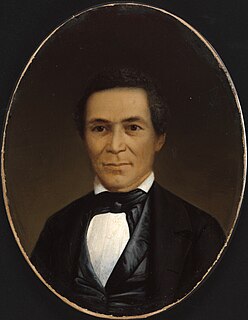 W
WJohn Brown Russwurm (1799–1851) was an abolitionist, newspaper publisher, and colonizer of Liberia where he moved from the United States. He was born in Jamaica to an English father and enslaved mother. As a child he traveled to the United States with his father and received a formal education, becoming the first African American to graduate from Hebron Academy and Bowdoin College.
 W
WGerrit Smith, also spelled Gerritt, was a leading American social reformer, abolitionist, politician, and philanthropist. Spouse to Ann Carroll Fitzhugh, Smith was a candidate for President of the United States in 1848, 1856, and 1860, but only served 18 months in the federal government—in Congress as a Free Soil Party Representative, in 1853–4.
 W
WGeorge Hume Steuart (1790–1867) was a United States general who fought during the War of 1812, and later joined the Confederate States of America during the Civil War. His military career began in 1814 when, as a captain, he raised a company of Maryland volunteers, leading them at both the Battle of Bladensberg and the Battle of North Point, where he was wounded. After the war he rose to become major general and commander-in-chief of the First Light Division, Maryland Militia.
 W
WRichard Sprigg Steuart (1797–1876) was a Maryland physician and an early pioneer of the treatment of mental illness. In 1838 he inherited four contiguous farms, totalling approximately 1900 acres as well as 150 slaves.
 W
WJohn W. Taylor was an early 19th-century U.S. politician from New York. He was the first Speaker of the House of Representatives from the state.
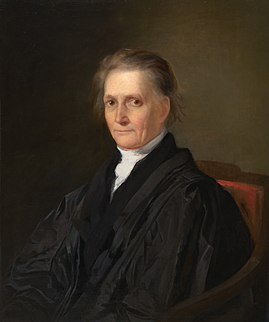 W
WBushrod Washington was an attorney and politician who served as Associate Justice of the Supreme Court of the United States from 1798 to 1829. On the Supreme Court, he was a staunch ally of Chief Justice John Marshall.
 W
WDaniel Webster was an American lawyer and statesman who represented New Hampshire and Massachusetts in the U.S. Congress and served as the U.S. Secretary of State under Presidents William Henry Harrison, John Tyler, and Millard Fillmore. As one of the most prominent American lawyers of the 19th century, he argued over 200 cases before the U.S. Supreme Court between 1814 and his death in 1852. During his life, he was a member of the Federalist Party, the National Republican Party, and the Whig Party.
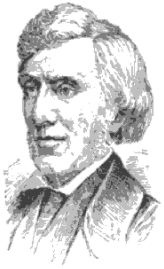 W
WSamuel Wilkeson was a merchant, politician, and judge who served as mayor of Buffalo, New York.